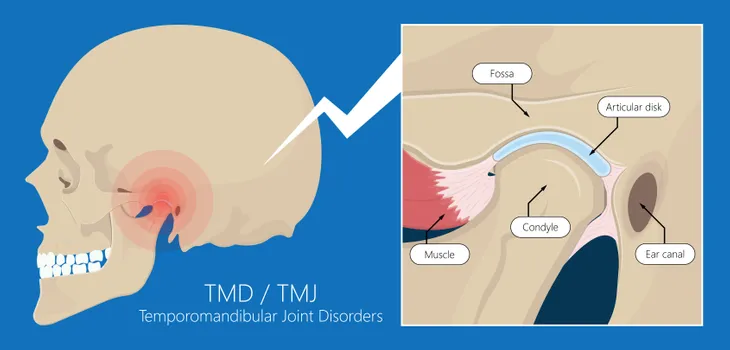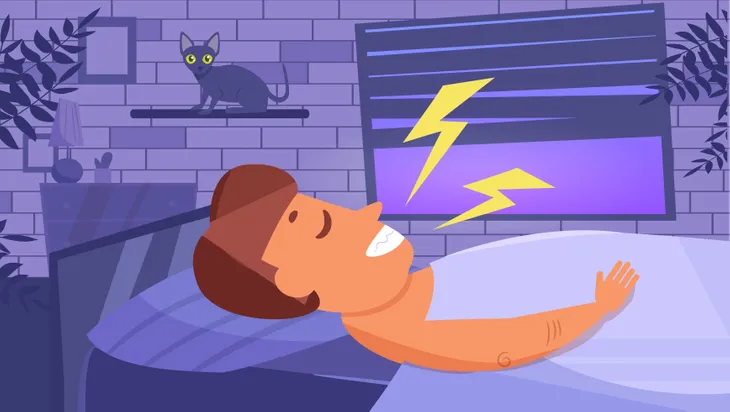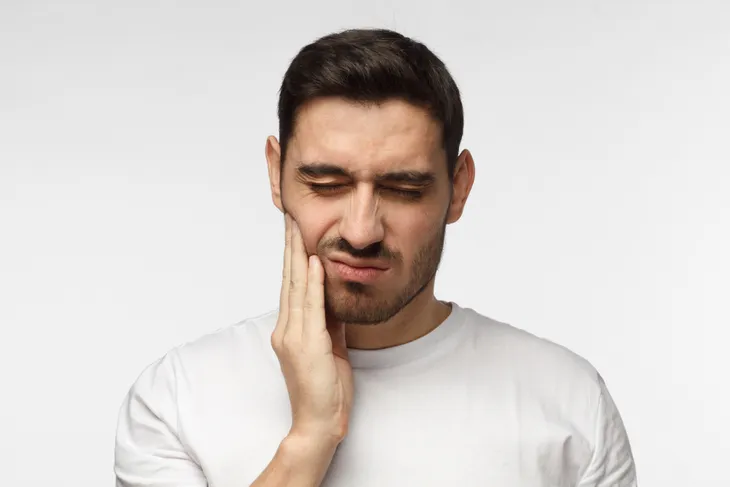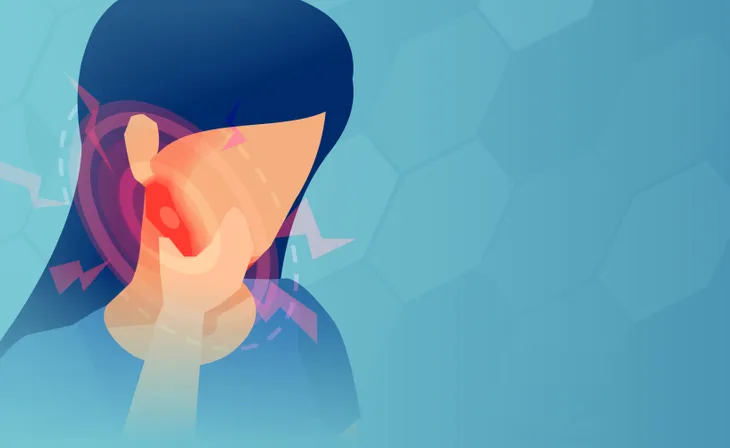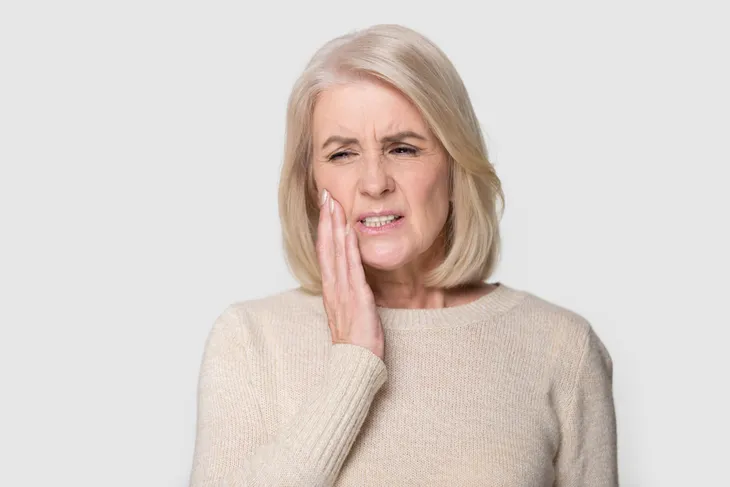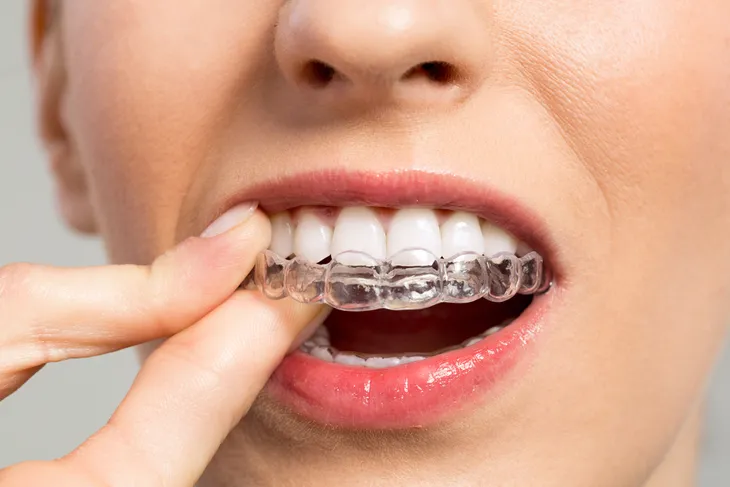Here’s something to chew on – up to 40-percent of Americans have some kind of pain in the face or jaw. The pain can be accompanied by other symptoms, including limited movement of the jaw, numbness, and “jaw noise” (such as clicking), that aren’t typical of a well-functioning jaw, notes Harvard Health Publishing.
But what causes this jaw discomfort? There can be a wide number of reasons your jaw is aching, and in many cases, it can be treated. But, in other cases, it can actually be a warning sign of a bigger problem like a heart attack. Let’s bite into more information about what is causing your jaw pain, and what to do about it…
Temporomandibular Joint (TMJ) Disorders
TMJ disorders are the leading cause of jaw pain, says Healthline. In any case, the source says TMJ disorders affect about 10-million people in the U.S. alone.
There are a number of reasons a person may develop a TMJ disorder, whether it’s a direct injury to the jaw or a slipped disc that’s meant to cushion movements. While the pain can be focused in the hinges of the jaw itself, it can radiate and present as ear discomfort, headaches, and even dizziness in some cases.
Teeth Grinding
Bruxism is the medical term for grinding your teeth, which can be a cause of TMJ disorder. WebMD explains that “most people” grind their teeth now and then, but if it’s a regular occurrence (you might not notice it if you do it in your sleep), it can cause more serious issues.
Teeth grinding can be from stress, but in many cases, it’s from “an abnormal bite or missing or crooked teeth,” explains WebMD. It can prematurely wear down teeth requiring dental work, and it can also cause tenderness of the jaw, adds the source. Wearing a mouthguard at night is typically how to reduce the effects of bruxism, but stress management can also be helpful.
Dental Conditions
There are several dental conditions requiring attention that can cause some jaw pain, such as having a cavity, having damaged teeth, or having a dental abscess, explains Medical News Today. Gum disease is another condition that can develop and cause jaw pain, adds the source.
Seeing the dentist is an essential part of managing your overall oral health and tackling (or preventing) the issues we’ve mentioned. However, the source adds that dental surgery itself can also be a source of jaw pain, as there is some recovery needed depending on the procedure.
Sinus Issues
You already know that sinus problems can cause discomfort in the face and nose from inflammation, as well as even cause mild headaches. In fact, “sinus headache” is a category of its own when it comes to things that make your head hurt.
However, sinus issues can also cause jaw pain, according to Healthline. That’s because a sinus infection (whether it’s from a virus or bacteria) can produce excess mucus that can actually put more pressure on the jaw joints.
Other Possible Causes
Healthline lists some other possible causes of jaw pain, which may need to be treated differently. For example, it says cluster headaches that usually cause pain behind the eyes can radiate to the jaw. You may also be suffering from trigeminal neuralgia, which is compression of the trigeminal nerve that’s responsible for transmitting pain in a large part of your face.
Medical News Today adds a few more possible causes to the list. Jaw pain could be a result of arthritis that can affect jaw joints. Neuropathic pain (including neuralgia) that occurs from damaged nerves may also be an explanation, and this can flare up occasionally or be continuous, adds the source. The source also adds that vascular conditions, including angina, can be the culprit (as well as being a risk for heart attack).
Symptoms Beyond Pain
As you already know, jaw problems can cause pain. However, there are a number of other symptoms you might be experiencing due to any of the causes we’ve mentioned that are of concern. For example, perhaps you’re no longer able to open your jaw as freely as you once could, or it’s locking up completely.
Other symptoms that accompany jaw pain can include earaches and ringing in the ears (tinnitus), as well as dizziness and vertigo, explains Medical News Today. You may also have a “burning sensation” or experience a fever.
Possible Complications
In some cases, jaw pain can be temporary, especially if it was from an injury that’s healing. However, if you have prolonged jaw pain and you’re not really sure of the cause, it might get worse if you don’t have it looked at by a medical professional.
Medical News Today warns of complications related to dental issues, as well as possibly developing an infection. Jaw pain can also prevent you from chewing healthy food as your appetite drops, which can lead to other problems. Aside from possible physical complications, ongoing jaw pain can also cause “emotional distress,” adds the source.
Signs Of a Heart Attack?
The stereotypical heart attack is someone suddenly clutching their chest in pain. However, the reality is there can be a number of warning signs leading up to the event, and jaw pain can be one of them, explains Heart.org.
Aside from pain in the chest area, there can be other upper body pain that appears in the arms, back, stomach, or jaw. It also explains that women are slightly more likely than men to feel these other types of upper body discomforts (including jaw pain) that are a warning of an impending cardiac emergency.
Treating The Root Cause
There are a number of ways to treat jaw pain, such as using over-the-counter pain relievers if you’ve suffered an injury that’s causing it. You can also ease the burden on your aching jaw by eating softer foods for the time being, notes WebMD, but the symptoms will linger or get worse if the cause isn’t addressed.
If it’s bruxism, you can try the mouthguard route (as well as trying meditation or yoga for stress relief). Antibiotics can help clear up any infections that are causing the jaw pain, or your doctor might prescribe an antiviral medication. Dental pain leading to jaw issues could require a root canal or braces to align teeth, offers Medical News Today. In the case of an injury, surgery might be required to repair damage to the jaw.
Other Pain Relief Approaches
Along with pain medicines and eating soft foods, you can also try to get relief by simply giving your jaw a rest or by using cold compresses for up to 20-minutes each day, up to four times daily. You can also try some facial exercises to try and stretch the jaw. Healthline offers a list of exercises you can try to counter TMJ disorders.
Aside from those techniques, you can also try massage or acupuncture. Ensuring your posture is properly aligned while standing or sitting can also be effective to prevent neck strain that can cause jaw pain. However, if none of these approaches are working or the pain is interfering with your life, it’s time to consult a doctor to diagnose the cause.

